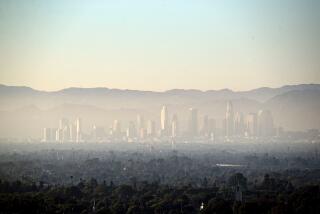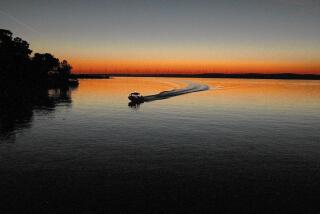Arsenic Issue Bungled, Bush Says
CRAWFORD, Texas — President Bush on Friday rued his administration’s handling of a decision to reconsider arsenic levels in drinking water, suggesting that the flap unfairly tainted his administration as being anti-environment.
“I think we could have handled the environmental issue a little better,” Bush conceded during an interview on ABC-TV’s “20-20,” which aired Friday night.
“My administration’s made a lot of very thoughtful and environmentally sensitive decisions, but you get no credit for it,” he said.
The president cited the arsenic controversy when asked what decision he would like to be able to make over again. The flap erupted early in his administration, and it has since forced Bush to go to great lengths to portray a greener image.
The existing standard for allowable levels of arsenic in drinking water is 50 parts per billion. The Clinton administration in its waning days set a new standard of 10 parts per billion, which was to have taken effect in March.
But Bush’s Environmental Protection Agency chief, Christie Whitman, rescinded that new standard until an EPA review of the cost and health effects.
The rollback of the arsenic regulation was one of several decisions by the Bush administration in its first few months that upset environmentalists. Another reversed a Bush campaign promise to regulate carbon dioxide emissions from power plants.
Both the House and Senate recently approved measures that would require the EPA to toughen the standard for arsenic in drinking water, but whether the rule would be as tough as the Clinton plan remains to be worked out.
In the ABC interview, Bush defended Whitman’s actions, saying that she had merely “pulled back a rushed piece of regulation to look at it, to make sure the science was sound, and therefore we got labeled for being for arsenic in water.”
Bush added: “It was kind of a silly characterization. . . .
“Listen, ours is an administration that’s going to put forth good, balanced environmental policy, policy that understands you can have economic growth and at the same time protect the environment, policy that’ll base decisions on science, not on some fad or, you know, politics.”
More to Read
Sign up for Essential California
The most important California stories and recommendations in your inbox every morning.
You may occasionally receive promotional content from the Los Angeles Times.










